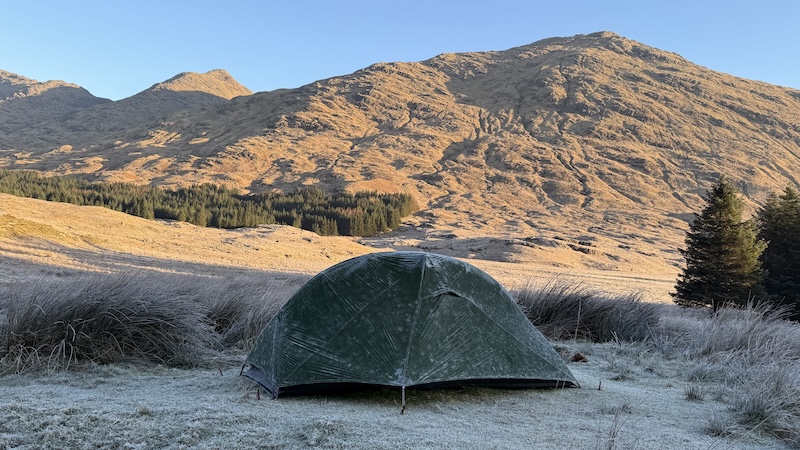I have tested the Aplkit Ultra 1 tent – and footprint – on several backpacking trips in the Scottish mountains. While conditions were were mild on one occasion, on two others they were cold, frosty, wet and very windy. I also used the tent during my Mountain Leader training in Scotland. Here are my thoughts.
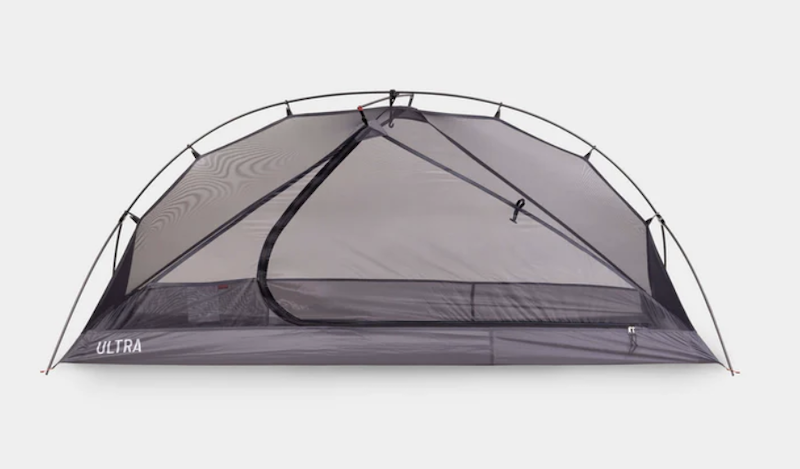
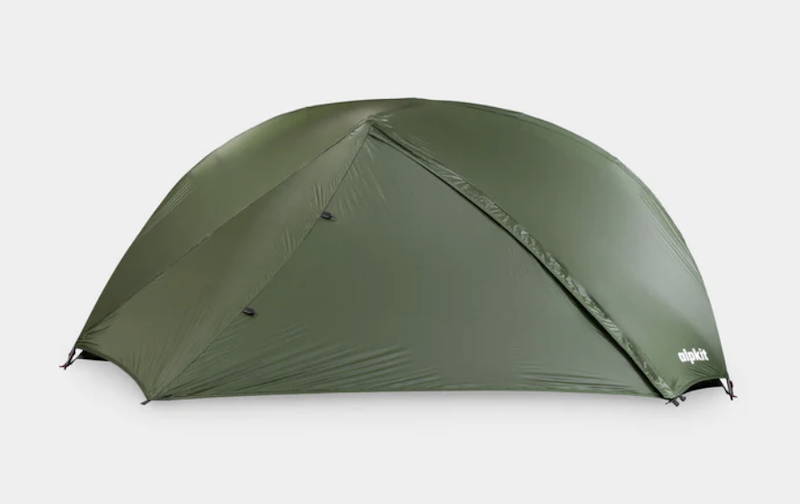
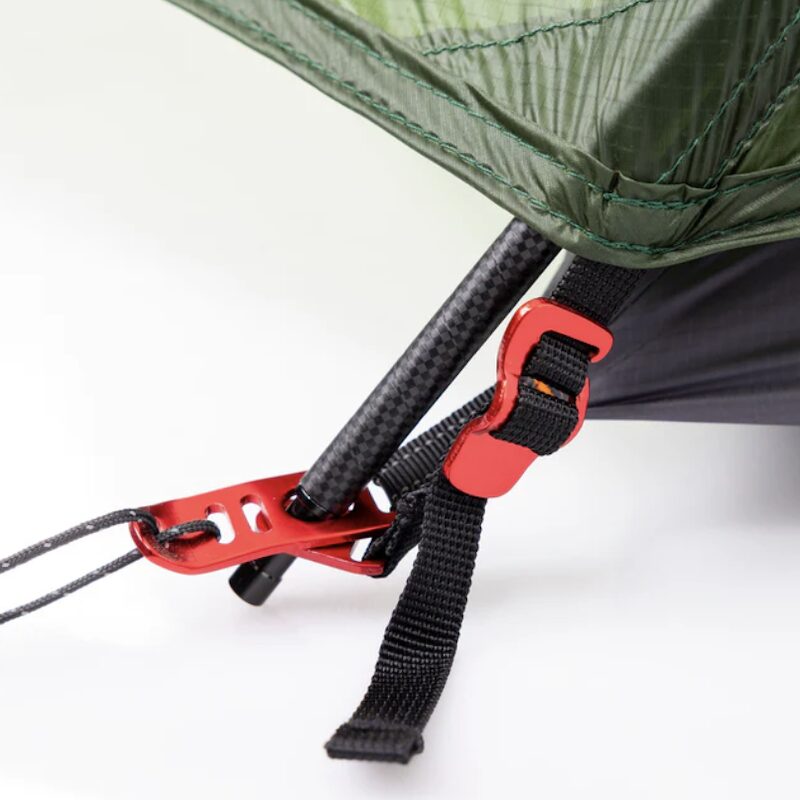
Features of Alpkit Ultra 1 tent
Weight: 900g
Pitching inner + flysheet
Freestanding structure
Asymmetric shape
Mesh inner plus flysheet
Bathtub groundsheet
Side-entry porch
Internal stash pockets
Hanging loop
TPU seam taping
PFC-free face fabric
Flysheet 10D Nylon Sil/Sil ripstop
Groundsheet: 15d Nylon ripstop Sil/PU/ 5000mm hydrostatic head
Carbon fibre poles
7 x Apex alloy pegs
1 side entry porch
Inner dimensions: Width 77cm, length 210cm, height 80cm
Price: £299.99
alpkit.com or Amazon
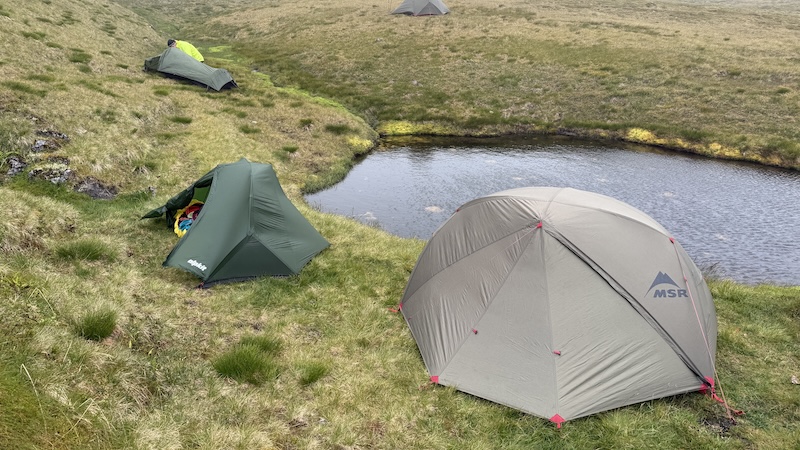
My thoughts: Alpkit Ultra 1 tent
The balance of weight and size is an important consideration for a backpacking tent. as a fairly lightweight female, I prefer to carry a lighter tent although I am aware that some lightweight tents are less durable and robust. Many lightweight tents also sacrifice roominess.
The Alpkit Ultra 1 is one of the lightest three-season tents I’ve ever tested. It weighs just 900g although with a stuff sack and bags for pegs and poles this rises to 953g. I also took a footprint ground sheet – at an extra cost of £19.99 and an additional 134g – to protect the tent from rough ground.
Pleasingly, while light, it proved to be fairly sturdy and, even in moderately strong overnight winds, it remained stable. There was a bit of fabric flapping, but nothing too annoying. I would not be keen to use the tent in very strong winds or day after day of heavy rain but for most two-season and many three-season situations it will serve you well.
The addition of guy lines would surely be a bonus for stronger winds but the tent doesn’t have them.
The outer fabric, which feels soft and light to the touch, resisted rain, frost and snow, however it wasn’t so good at keeping out a cold wind. I camped in a windy glen and wished the outer fabric was a little thicker.
The tent is erected in two parts – inner and then flysheet – with elasticated carbon fibre poles. I am familiar with this set up and even on the first occasion, I managed it fairly swiftly. The tent required very little adjustment to make the fabric taut. I was able to complete the task in less than 10 minutes.
It is a semi-freestanding design, which means you could choose to use only the inner part of the tent and not bother with the flysheet in the right conditions. I’m not sure these conditions ever exist in Scotland, especially with midges around.
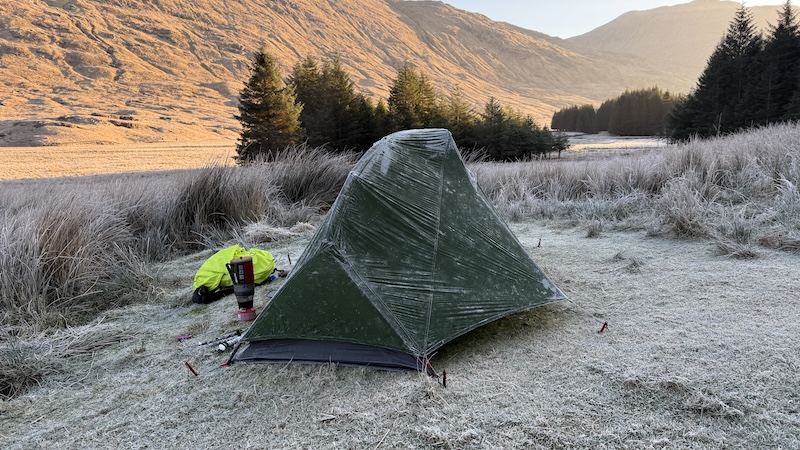
The asymmetric shape means that the internal space is quite roomy, although, that is, roomy for a one-person tent. I had a small area of space at the foot of my sleeping mat for storing a dry bag and I also made use of the internal stash pockets for small items. A hanging loop is useful for a headtorch.
But the head height is so low that you are permanently bowed at the neck. This means there is little room for getting changed or moving about. As I said before, there is a balance of weight versus comfort and size.
There is the additional bonus of a small side porch, where I placed my larger pack and hiking shoes. The side entrance makes it quite easy to get in and out of the tent, although it’s important to note that this is a small, low tent and you do need to be quite flexible.
Dismantling the tent and stuffing into a sack is easy but the outer fabric takes a while to dry if it gets wet overnight.
Alpkit offers a three-year “Alpine bond” that allows you to request repair, replacement or return if it doesn’t “live up to the demands placed upon it”. This statement seems somewhat vague

